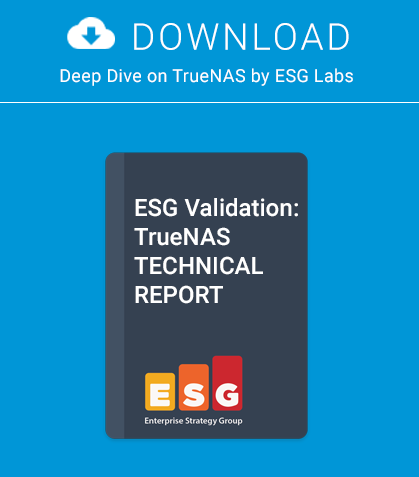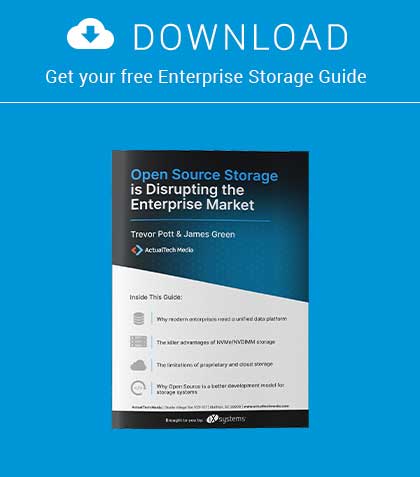EuroBSDCon, one of the primary annual BSD conferences worldwide, set a new record this year of greater than 300 attendees. While many BSD developers attend multiple conferences during a year, according to official statistics most of the EuroBSDCon attendees this time were from Europe, and especially from France (IIRC > 60), while only around 10 were from the US.
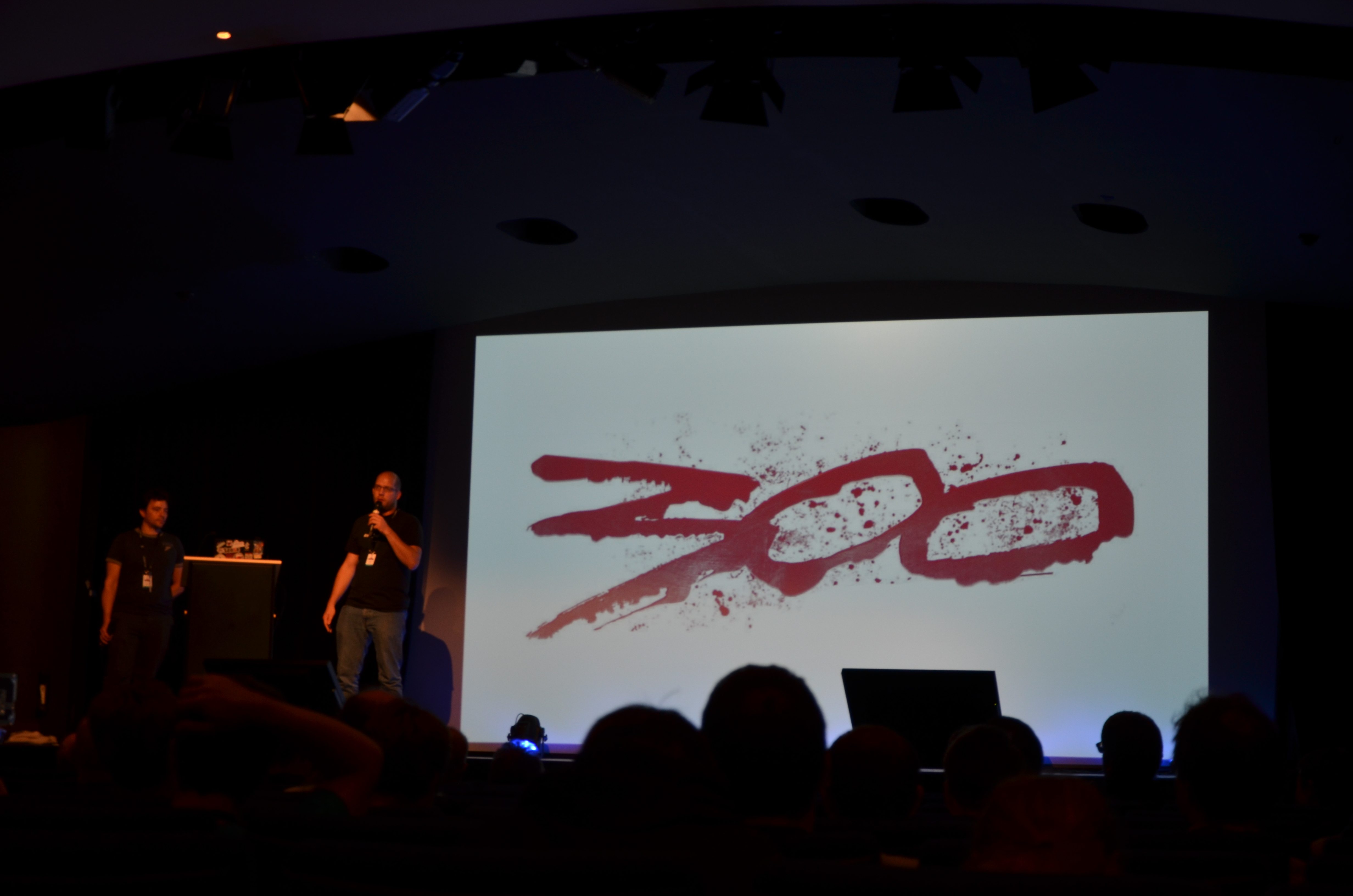
Conference activities for me started with the two-day FreeBSD Developer Summit, which this time hosted about 60 developers from all over the world. The Summit was hosted at the Mozilla Paris office, which appeared quite nice and unusual.
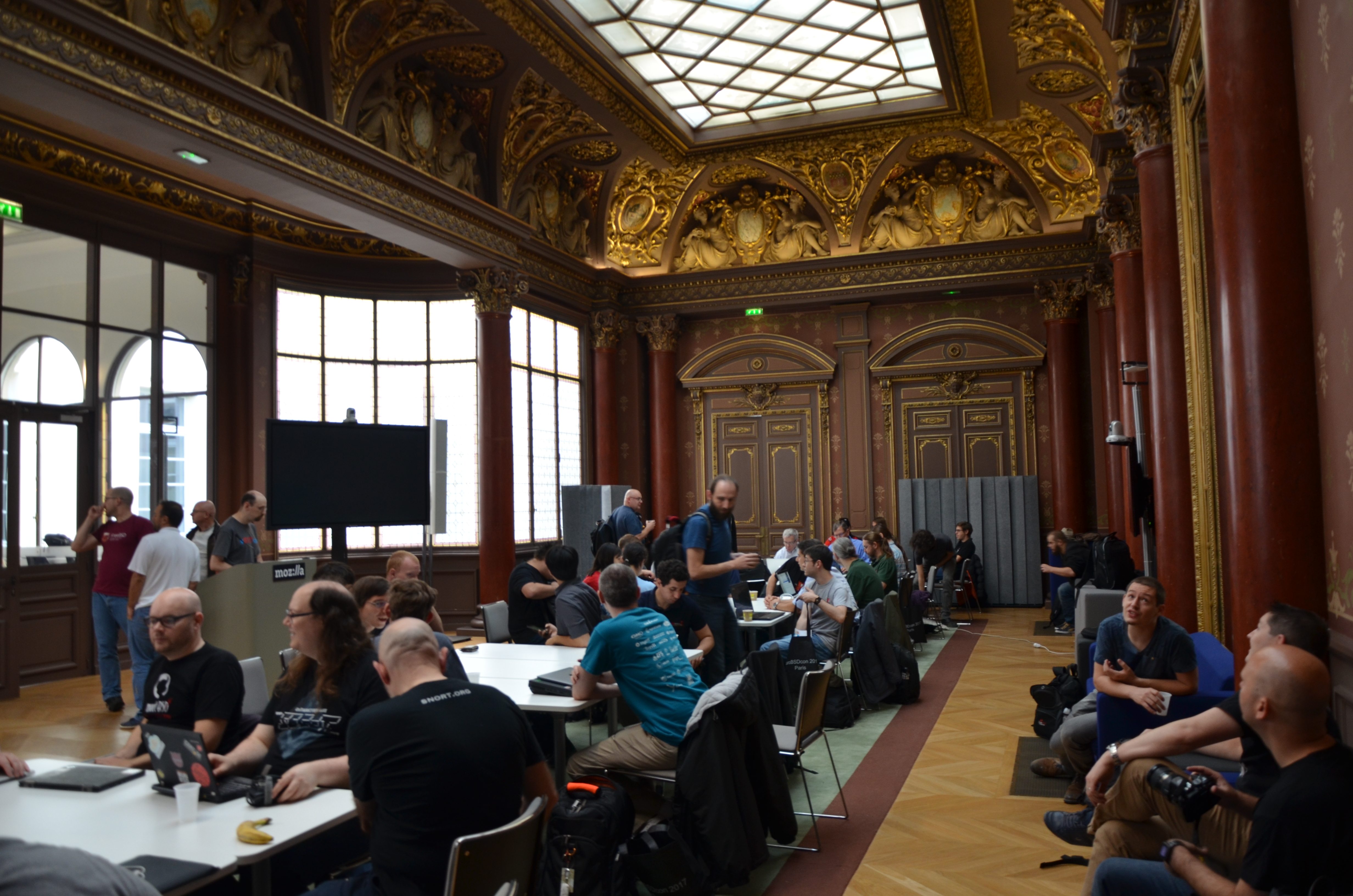
As usual, the FreeBSD Developer Summit was a place for developers and invited attendees to make presentations of their ongoing work and then discuss them and other topics in free conversations.
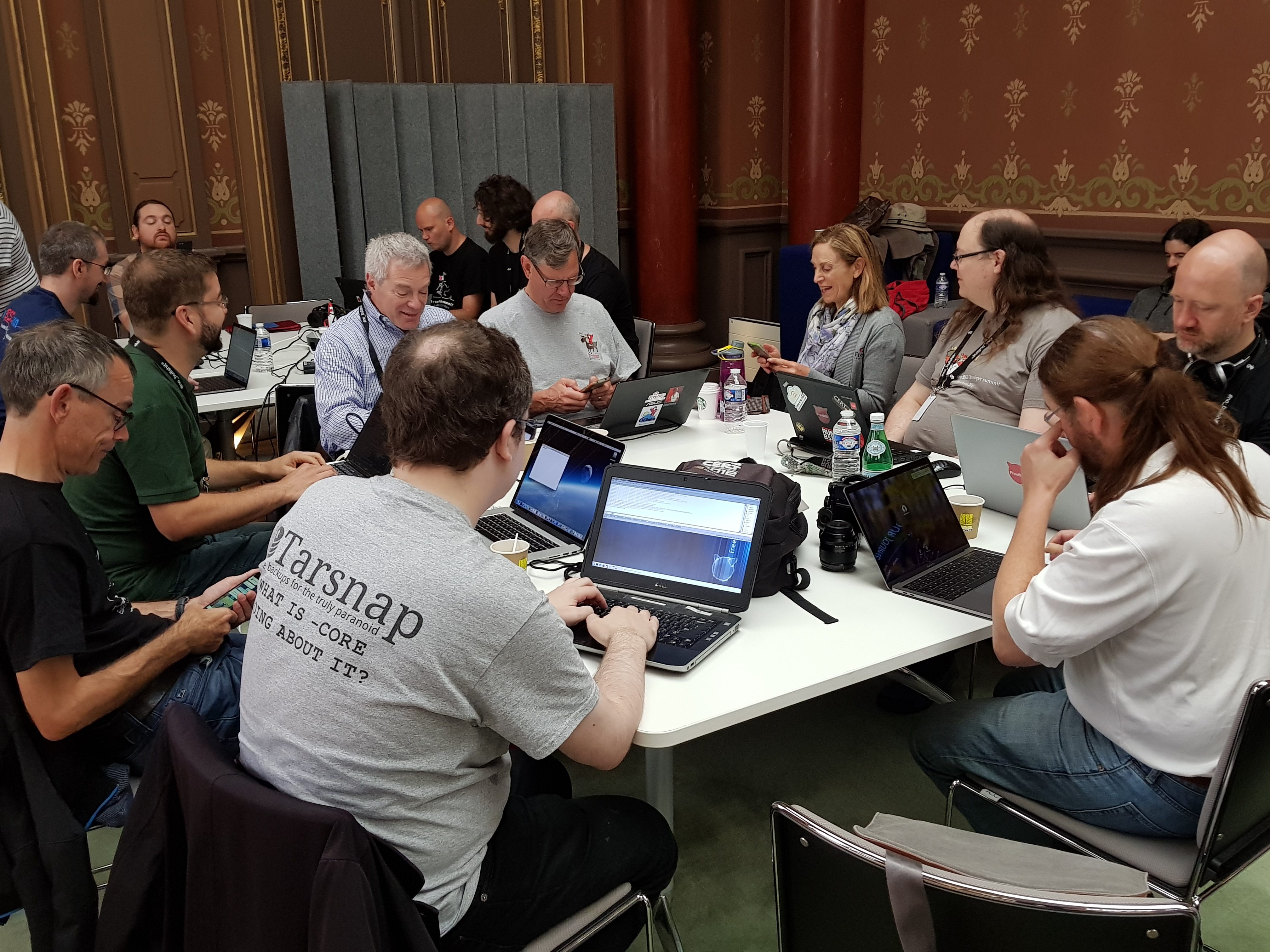
The next day started with the main part of EuroBSDCon, which included three full day tracks of presentations and an additional Birds of a Feather track of moderated conversations on different topics. The conference opened with the first keynote, “Software Development in the Age of Heroes”, in which Thomas Pornin compared the characteristics of a hero to a software developer.
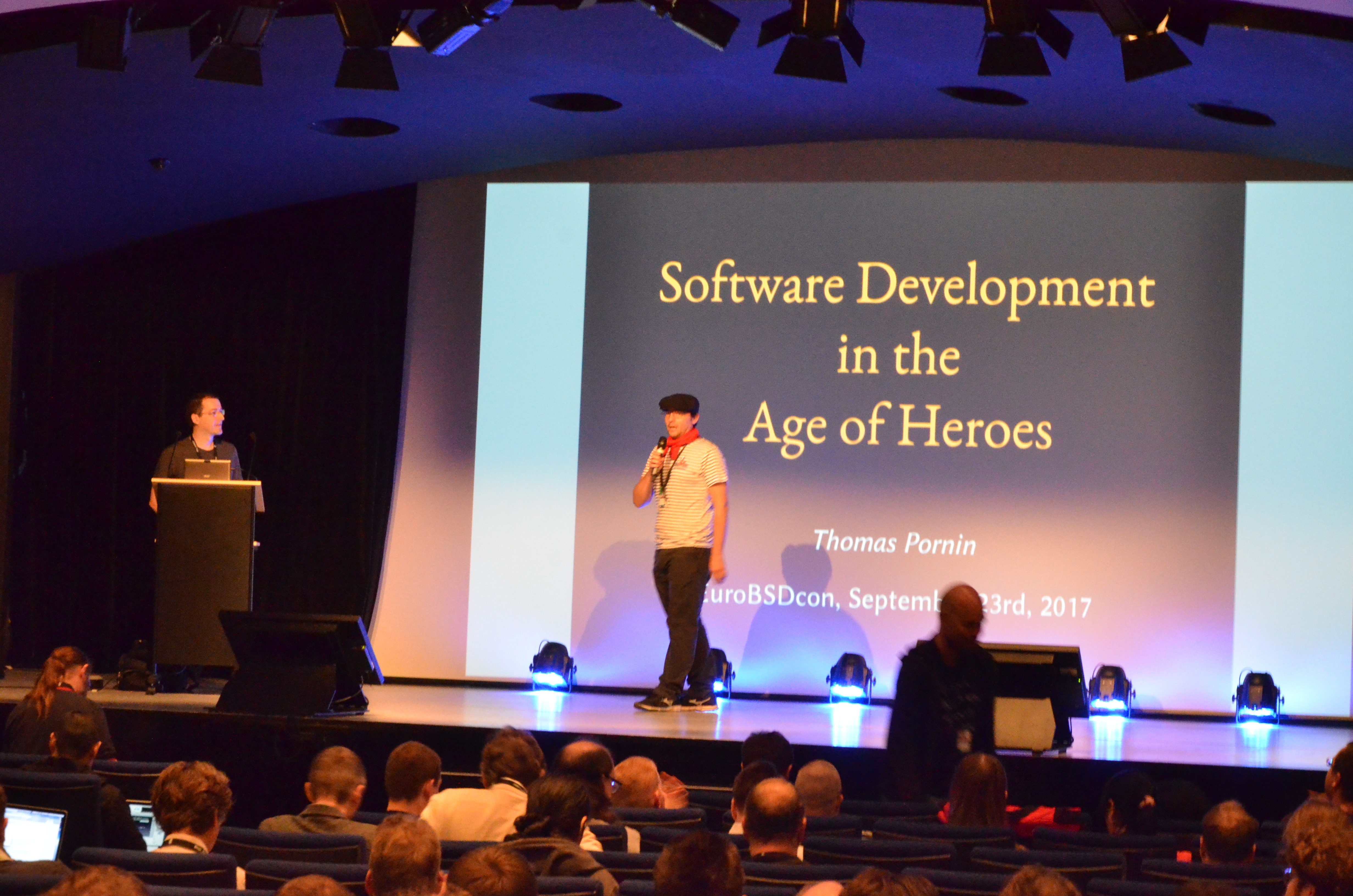
Antoine Jacoutot (of OpenBSD) and Baptiste Daroussin (of FreeBSD) organized a battle of their favorite operating systems, enlightening attendees with the benefits and downsides of each.
Christos Zoulas gave a talk on “Reproducible builds on NetBSD”, which was more or less the same as ones I heard before for other operating systems, including FreeBSD.
After that we attended a BoF group on “FreeBSD-based storage HA concepts and implementations”. There were a few dozen attendees with general interest in the topic, and we were able to politely advertise the TrueNAS HA capabilities, which received a positive reception.
The official part of the first day of talks was closed by the second keynote, “A French story on cybercrime”, by representative of the French gendarmerie Éric Freyssinet in which he briefly described some scenarios of cybercrime and answered some questions.
After that most people moved to the official social event of the conference, which this time happened on a large boat, sailing up and down the Seine river through the historical center of Paris. It was a place for many random informal conversations, supported by French wines and dishes.
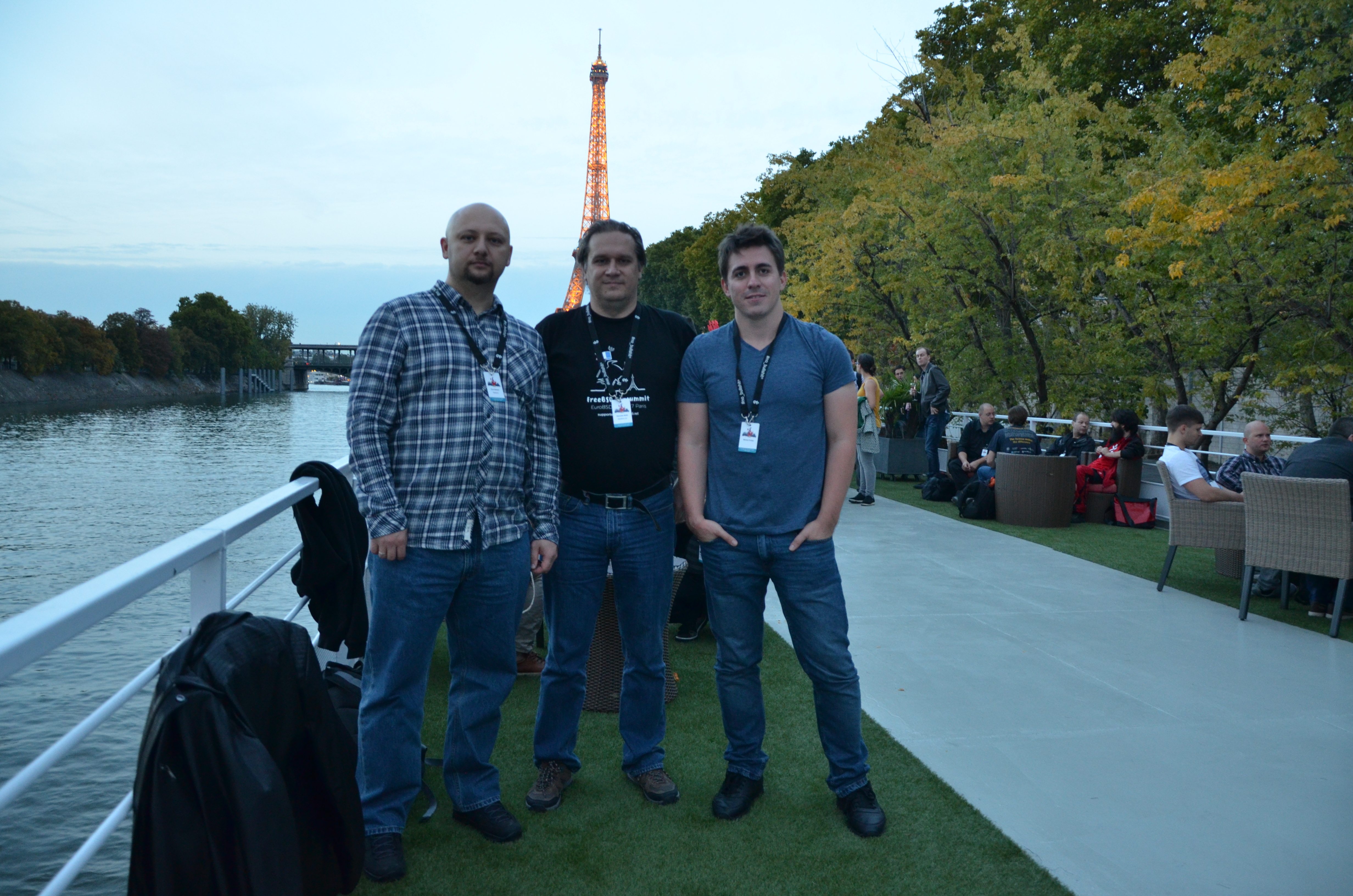
The second day of talks was opened by Mariusz Zaborski with “Case studies of sandboxing base system with Capsicum”. It is not the first talk of that kind that I’ve listened to, but it is good to see that Capsicum development continues:
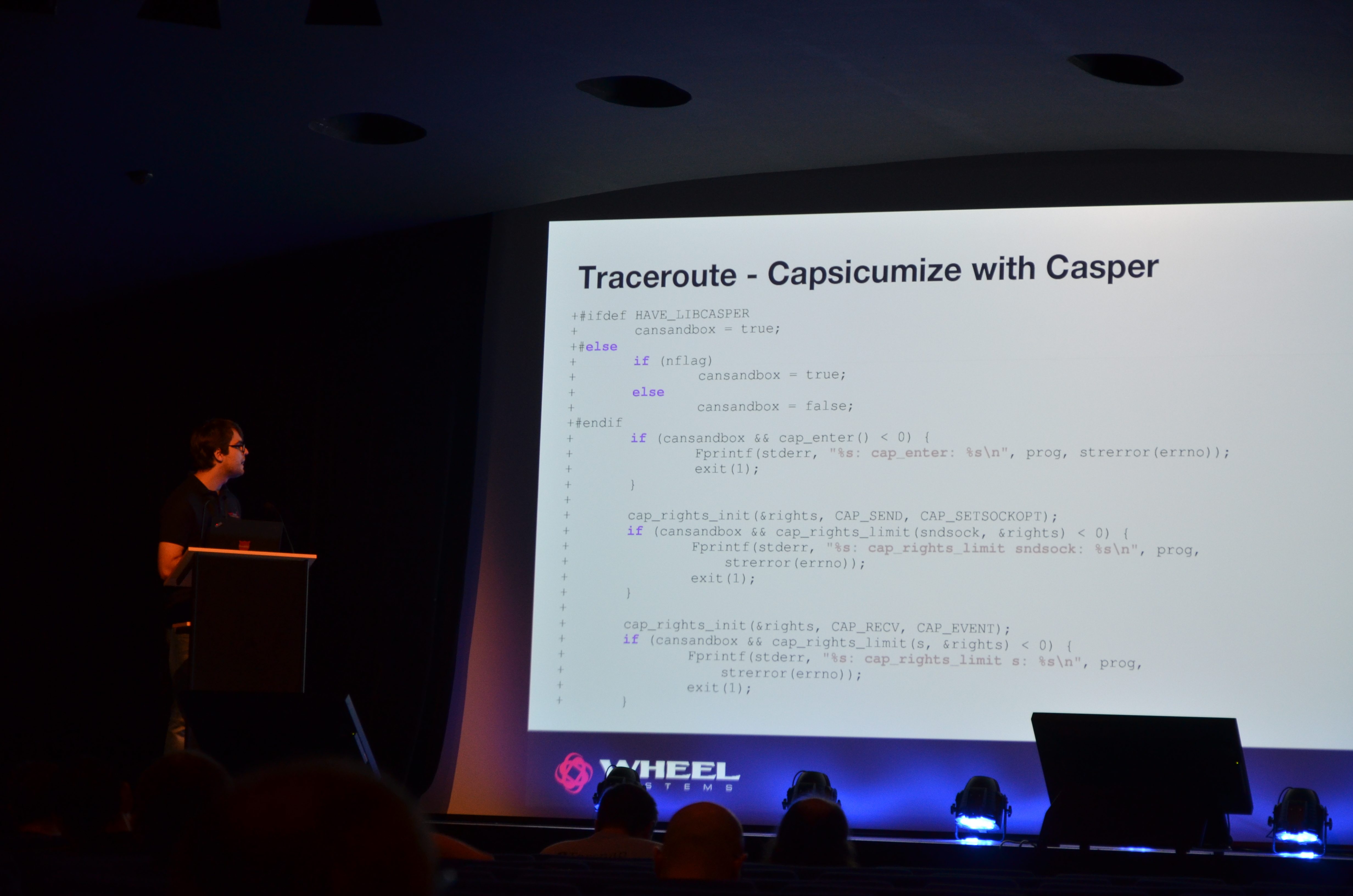
The discussion on security was continued by Ed Schouten with his talk “Running CloudABI applications on a FreeBSD-based Kubernetes cluster”, in which he talks about his work on integration of FreeBSD nodes with a Capsicum-based security mechanism called Cloud ABI into an otherwise Linux environment of Kubernetes clusters. His main point was that FreeBSD should not try to copy or replace Linux, but instead search for points where it can do things better:
After that I attended the ZFS BoF, where people discussed some of their ZFS-related questions. The Intel representative in attendance gave a quick presentation about Intel’s use of ZFS to manage their driver testing environment, net-booting hundreds of different nodes from FreeBSD NFS+iSCSI server:
Julien Simon & Nicolas David gave a presentation, “Running BSD on AWS”, which included a practical demonstration of building a FreeBSD environment on different VM configurations. As they mentioned, FreeBSD works well in an Amazon VM environment, but they recommended to carefully choose more cost-efficient VM configurations. A more expensive system with 128 CPU cores is not necessarily needed over one with 64 cores. At the end it was mentioned that work on that side is continuing and fresh FreeBSD head builds should scale even better with the recent 11.1 release:
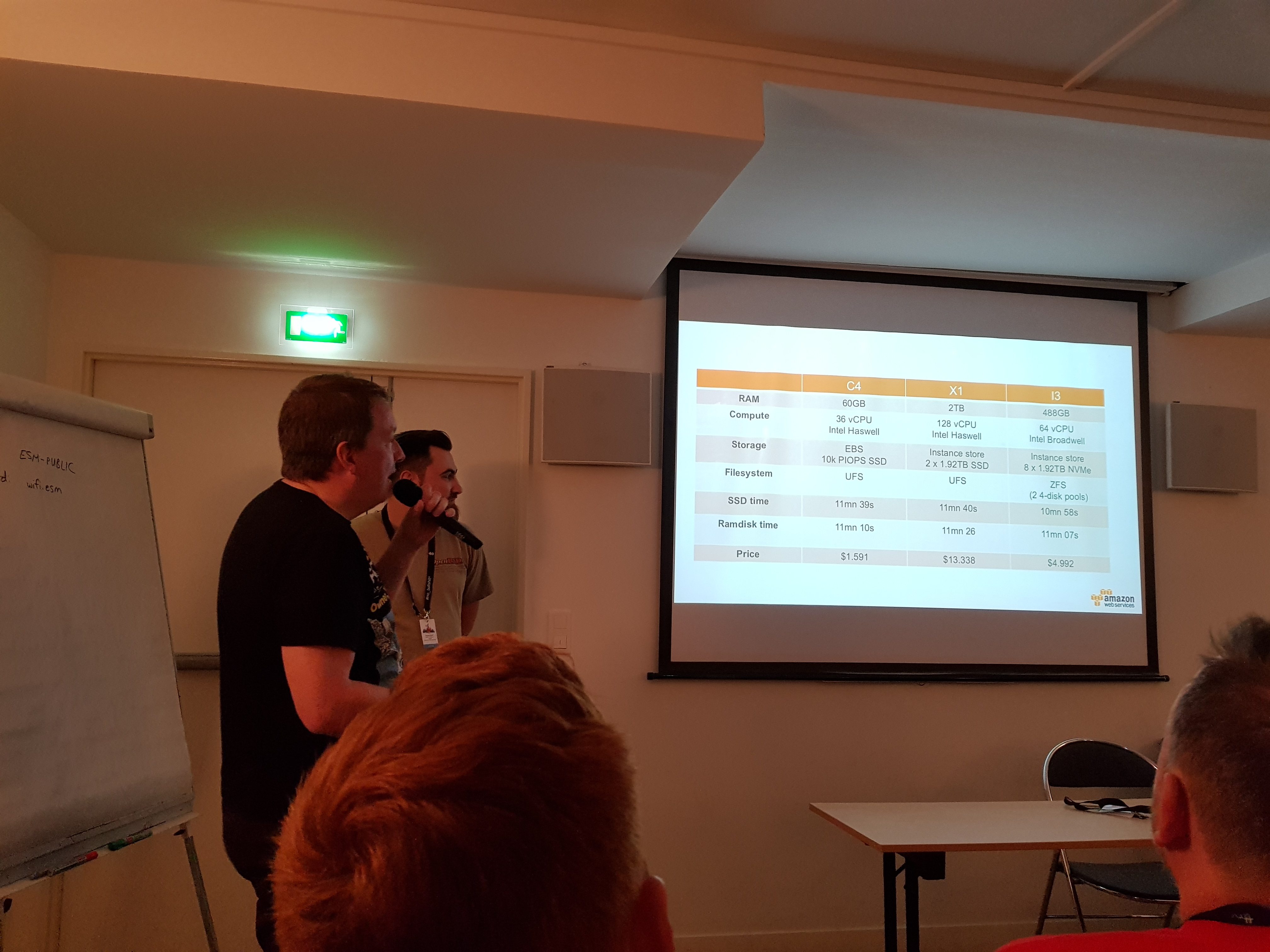
Theo de Raadt gave a talk on “Hoisting: lessons learned integrating pledge into 500 programs,” in which he talked about some modern security issues. He challenged FreeBSD’s Capsicum mechanism, defending OpenBSD’s mechanism called pledge for its lower development overhead and better universality (this resulted in a healthy discussion).
The conference ended with the third keynote talk, “System Performance Analysis Methodologies,” by Brendan Gregg. The material covered was not a big surprise for me, but obviously should be useful for many new developers and system administrators.
As part of the conference closing ceremony, the FreeBSD Foundation honored four developers for their contributions to the FreeBSD community.
All in all, EuroBSDCon 2017 was quite an exhilarating experience for us. We had the opportunity to listen and learn from some of the most talented FreeBSD developers and then interact with them on a personal level. We offer our gratitude to the EuroBSDCon staff for creating another successful event, this time in the beautiful Paris region, and look forward to returning to the conference next year.
Alexander Motin
Senior Developer


